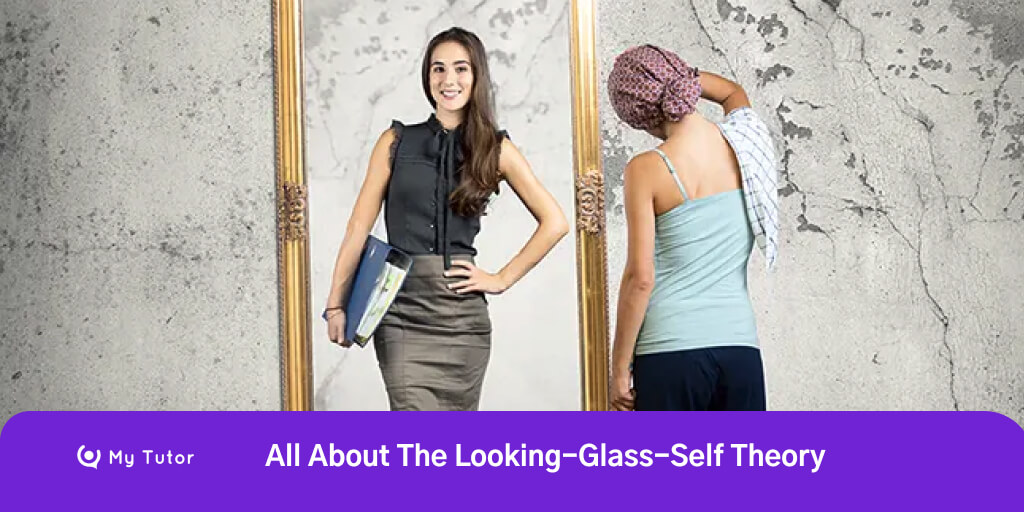Blog

All About The Looking-Glass-Self Theory
We, as humans, are social creatures. Our interactions with others have a profound impact on our sense of self. This is what the looking-glass-self theory is all about. The famous theory talks about how our self-concept is shaped by our perception of how others see us.
This theory was proposed by Charles Horton Cooley in 1902. It has important implications for understanding human behavior and relationships. Besides, there is a vital role of socialization in the process of the theory.
In this blog, we will explore the looking-glass-self theory in detail. At the same time, we will also discuss its relevance in today’s world.
The Three Components Of The Looking-Glass-Self Theory
According to Cooley, there are three components to the looking-glass-self theory. Let’s learn about them.
- The imagination of our appearance to others: This refers to our perception of how others see us. We imagine how we appear to others. Then we try to gauge their reactions to us.
- The imagination of their judgment of us: This refers to how we perceive how others evaluate us based on their reactions. Then comes trying to determine whether their judgment is positive or negative.
- The emotional response: This shows how we feel about ourselves based on our perception of others’ reactions and evaluations. If we perceive that others see us positively, we feel good about ourselves, and vice versa.
The Role Of Socialization And Looking-glass-self Examples
Socialization plays a crucial role in the looking-glass-self theory. Socialization is the process of learning social norms and values. Cooley argued that our sense of self is not innate but is shaped by our interactions with others.
We learn how to view ourselves based on the feedback we receive from our social environment. Let’s look at some looking-glass-self examples to understand this better.
If we grow up in a family that values academic achievement, we may develop a positive self-image if we do well in school. On the other hand, if we grow up in a family that values physical appearance, we may develop a negative self-image if we do not meet those standards.
As social media becomes more prevalent, the theory of the looking-glass-self becomes more complex. According to an article by Lesley University, various social media platforms are influencing our self-development to a great extent. It further states that people are now choosing different versions of themselves online. This is known as the “cyber self.”
Implications Of The Theory Of The Looking-glass-self
The looking-glass-self theory has several important implications for understanding human behavior and relationships.
Perception is subjective: Our perception of how others see us is subjective. It can also be influenced by our own biases and experiences. Therefore, our self-image may not always be accurate.
Self-fulfilling prophecies: The looking-glass-self theory suggests that our beliefs about how others see us can influence our behavior. This, in turn, can influence others’ perceptions of us also. For example, if we believe that others see us as competent, we may act more confidently. This can lead to others perceiving us as competent.
Social comparison: The theory of the looking-glass-self posits that we compare ourselves to others to gauge our own self-worth. We may compare ourselves to others who we believe are similar to us in some way. This can be age, gender, financial status, or social status.
Role of culture: The theory also highlights the role of culture in shaping our self-concept. Cultural norms and values can also influence our perception of how others see us. For example, in individualistic cultures, people may place more emphasis on personal achievement. But in collectivist cultures, people may place more emphasis on group harmony.
Final Thought
The looking-glass-self theory posits that our self-image is not based solely on our own thoughts and feelings. But, it is also based on how we believe others perceive us. This has indeed some positive impacts on us. The so-called “cyber-self” can help a person gain confidence and self-esteem as they get more digital exposure. All in all, the theory of the looking-glass-self may work as magic or toxic depending on the choices we make. However, choices may not be an easy task when it comes to children. That is where the role of teachers, parents, and guardians starts.
My tutor is available on Android and iOS







